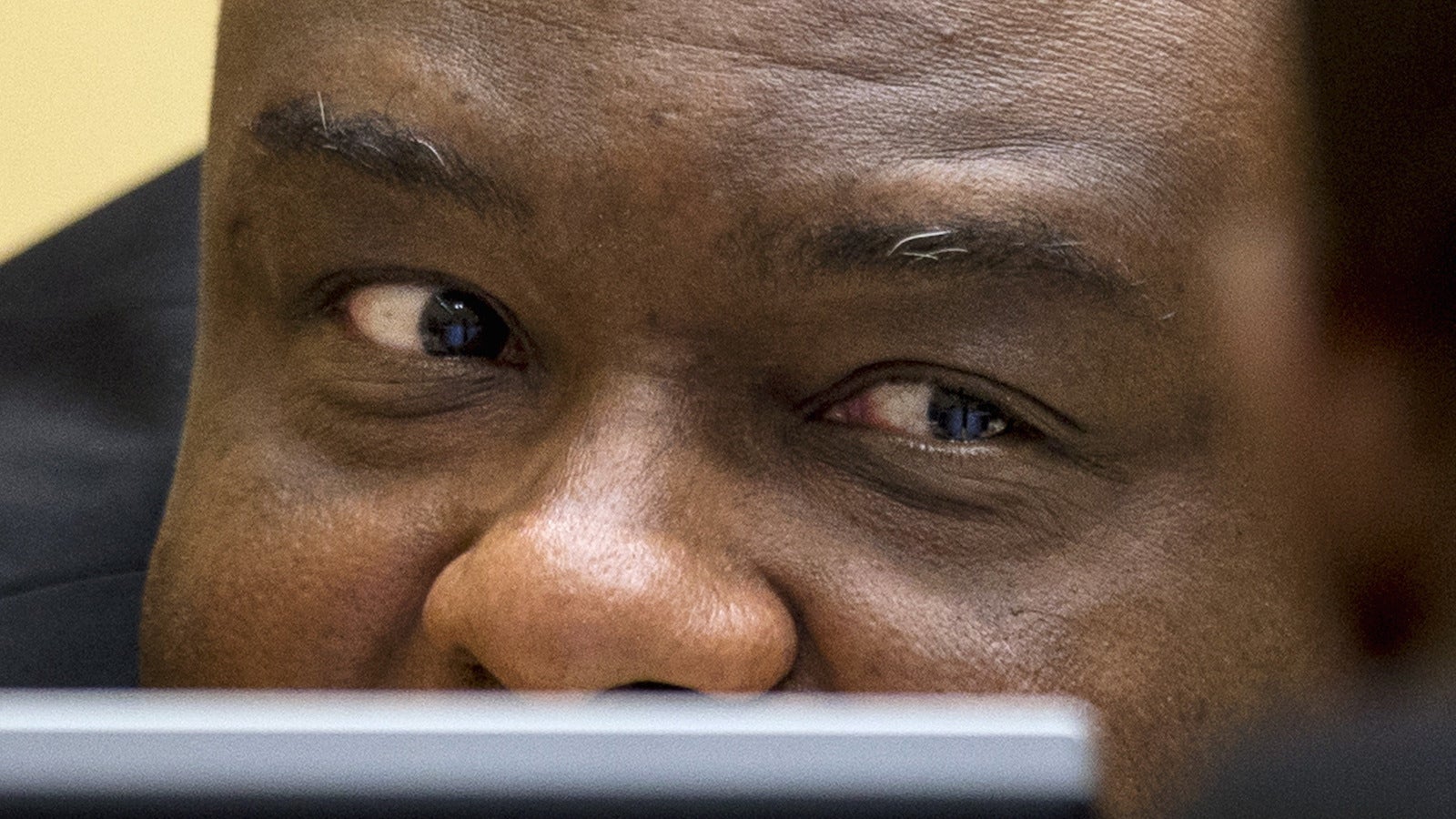The International Criminal Court is discovering why dictators are really hard to prosecute
At the International Criminal Court (ICC), corrupting witnesses has become a global business. Since it was established in 2002 to prosecute genocide, crimes against humanity and war crimes, the court in The Hague has indicted some three dozen people but convicted only two Congolese militia leaders. One reason, the prosecutors say, is rampant witness tampering.


At the International Criminal Court (ICC), corrupting witnesses has become a global business. Since it was established in 2002 to prosecute genocide, crimes against humanity and war crimes, the court in The Hague has indicted some three dozen people but convicted only two Congolese militia leaders. One reason, the prosecutors say, is rampant witness tampering.
Today (Sept. 29) the ICC opens its first case over witness corruption. It involves the former vice president of Congo, Jean-Pierre Bemba. He was originally brought to The Hague on charges of crimes against humanity and war crimes allegedly committed in the Central African Republic. But ICC prosecutors are also now charging him and four of his associates with being at the center of a corruption scheme that stretches from Bemba’s cell in the detention center in the Hague to Congo, Cameroon, Portugal, Sweden, and Belgium.
In May 2013, for example, Aimé Kilolo, Bemba’s lead counsel, is alleged to have met (pdf) four witnesses in the Cameroonian capital, Yaoundé, where he rehearsed their testimonies. After the meeting, he is said to have pulled out money and new cellphones for the witnesses so he could keep in touch with them in breaks in the hearings. (The ICC takes away witnesses’ phones when they’re testifying.) “It’s not corruption,” he is said to have told them. “It’s a gift from Mr Bemba because you’re testifying in his favor.” In total, the prosecution says, Bemba and his defense team corrupted 14 witnesses.
Bemba’s is the most prominent case of witness interference, but it’s far from the only one. In the past, ICC chief prosecutor Fatou Bensouda has called (pdf) the “scourge of witness interference” one of the court’s foremost challenges. (Her office wouldn’t comment for this article.) While it is difficult to gauge the real dimensions, “one would suspect that witness tampering is the rule rather than the exception,” Thijs Bouwknegt, an ICC expert at the Dutch Institute for War, Holocaust and Genocide Studies (NIOD), told Quartz.
The root cause of the problem, Bouwknegt explained, is the ICC’s excessive reliance on witnesses: “The trials are founded almost exclusively on the testimony of human beings.” Forensic or other evidence is merely supplemental, he said.
Witness tampering, therefore, poses “serious challenges for the ICC at the moment,” said Sergey Vasiliev, an international criminal law researcher at the VU University Amsterdam. He expects more indictments to come to light soon. “The more powerful and the higher up the defendant, the stronger the potential incentives, reasons, and means to obstruct justice,” Vasiliev explained.
Witness tampering has been particularly rampant in Kenya. There the ICC issued indictments in 2012 against six people, among them president Uhuru Kenyatta and vice president William Ruto, after some 1,200 people died in ethnic violence following the 2007 election. Last December, however, the prosecution withdrew its charges against Kenyatta, after several witnesses were bribed and intimidated. The cases against three other people were also closed due to a loss of evidence. Even the two remaining indictments—against Ruto and an alleged accomplice, Joshua Arap Sang—are proceeding with corruption-tainted witnesses. In total, 16 of the 42 prosecution witnesses have changed their stories or withdrawn.
As corruption threatens the ICC’s very ability to function, prosecutors are taking an increasingly tough stance. The court has issued an arrest warrant (pdf) for a Kenyan journalist who is said to have influenced several witnesses and offered them up to 1.5 million Kenyan shillings ($14,100). And at the beginning of September, Kenyan authorities arrested two other men at the behest of the ICC, whom the court accuses of “organizing a criminal scheme to systematically approach and corruptly influence” witnesses.
On issuing the warrants for those arrests, Bensouda’s office promised to take “action against individuals who attempt to pervert the course of justice by interfering with ICC witnesses.” The case against Bemba and his allies may be just the beginning.